Having only been to Calais last weekend, I'd decided to opt out of yesterday's planned trip with the Swindon-Calais Solidarity group because I didn't think I could cope with doing the trip two weeks running. It's a long day, physically and emotionally draining, and I have a family to support and a business to run …. But the terrorist events of Paris on Friday and a text from “my” Eritrean boy telling me he had no food conspired against me. When a spare seat became available late on Saturday I ummed and aahed about whether to take it until Steve said: “Just go, you know you want to.”
Like everyone, I was shocked by the attacks in Paris – innocent people slain as they went about their everyday Iives. I was also shocked by the early revelation that one of the terrorists may have been posing as a Syrian refugee… But mostly because I knew how that was going to affect attitudes towards the refugees already in Europe, not least those in Calais. I've been fighting so many hostile and outright racist commenters over the last few weeks and this news will only add fuel to their fire. If ever my Calais brothers and sisters need our support, it's now.
And so it was that I found myself heading to the Jungle for the fifth time in two months, armed with love, support and a hastily bought bag of groceries. After four visits I thought I knew what to expect, but this was the trip that threatened to break me … Because over the space of a week the situation there has got so, so much worse.
During the last week riot police have attacked the camp on three consecutive nights, firing tear gas and rubber bullets into areas where people were sleeping. On Friday an accidental fire spread through the Sudanese part of the camp, destroying 50 tents and leaving over 250 people without shelter. It's rained every day, and strong winds have ravaged most of the tents, leaving many more people homeless or trying to patch up ripped canvas, broken poles and missing pegs. At one stage we watched a tent take off and fly high into the grey sky over the camp
Last weekend there were some muddy areas but the camp was reasonably easy to navigate. This week rivers of mud run along the main pathways and areas of the camp resemble Glastonbury at its very worst. Yet the people here don't live in the knowledge that they'll be going home to their warm homes and comfy beds in a few days. This IS their home
Last weekend I was shocked by the increased number of women and children, families living in the camp. This time I saw pregnant women, newborn babies. I walked along with a family from Syria who had just arrived. The father was carrying a tent, four sleeping bags, a single roll mat. The mother was laden with blankets and struggling to stop her two young daughters from slipping in the mud. One girl was crying
As I looked around at the mud, the tents flapping in the wind, the scenes of utter devastation my heart broke and I couldn't help crying. Many times I had to step away and find a quiet corner where I could cry in privacy. It didn't feel right for my sorrow to be witnessed by the people who have nothing, who are struggling on bravely in the most horrendous circumstances, who are still able to greet you cheerily and share a smile and a hug.
We dropped off blankets and tents at a storage container where they could be distributed to new arrivals or those whose homes had been destroyed. I noticed faeces near the container and it took me a while to realise there were no dogs around. Late I watched children playing in the shit-infested mud.
Shoes are in high demand in the camp, now more than ever. Trainers don't last long when you're walking in ankle deep mud and many people have only canvas shoes, sandals or flip flops. We'd taken along dozens of pairs of sturdy shoes and boots, all bagged according to size, and in our naivety we thought we could distribute these from the van. We spent the best part of an hour trying to get people to queue in single file so we could safely open the doors and give the shoes out. Every time we opened the door the crowd surged forwards, turning the single line into a melee. At one stage I was crushed against the back of the van by the weight of a hundred people. “One line, one line!” we called out, over and over. Eventually the cry turned to “No line, no line!” as we realised that to continue was to put people at risk and to dehumanise people already treated by so many as animals.
We moved the van to a different location to try again and I slipped away to find Ridwan, the 14-year-old Eritrean boy I've taken under my wing. I'd not let him know I was coming and the joy on his face when he saw me broke my heart again. I popped into his hut to say hello to his friends Abel, Philimon, John and Alexander, and discovered they have a sixth housemate now, another Abel. Four Muslims, two Christians, living in harmony. “In my country we don't care about religion, we are all brothers and sisters,” Ridwan told me. He showed me a photo on his phone of his “old Mami” – apparently I'm his Mami now. I felt honoured he'd let me into his family – and so sad for him when he kissed the photo and told me how much he loved her.
My walkie talkie buzzed; it was Darrell, one of the founders of our group. “Where are you?” he asked. I told him I was with Ridwan, by the bridge. “Get out, get out!” he shouted. “The police are there with tear gas.” I panicked, told Ridwan I'd be back later, and fled. I've read that tear gas can get under contact lenses and result in temporary blindness, and I was terrified. I made my way back through the camp to our vehicles where I met the others. I was lucky; some of our team got caught in the attack, though fortunately they weren't badly affected
Ridwan came up to find me. “Why you so scared of the police?” he asked me. Why you run away? Gas is just normal here.” Cue my heart breaking once again. This is a teenage boy, a boy who should be going to school, playing football, doing teenage boy things. Instead he's stuck in a hellhole and tear gas attacks are just a way of life for him
There's a new sense of desperation amongst the people at the camp. I don't know if it's down to there being more refugees, or fewer volunteers / fewer donations, or the increasing realisation that the dangerous journeys they've made to get this far have been pointless as they are now stuck. We loaded up wth food from the cars and set off towards the family section to distribute. On previous trips we've been able to move around fairly easily to get to the areas we wanted to cover, but this time we were instantly surrounded by a crowd of desperate people. “I have family, they are hungry,” one man told me. “My family, my family!” a young boy begged me. “Please help me feed my babies,” a woman pleaded. We had bananas, fish, chocolate, biscuits. Our meagre supplies didn't go very far.
I spotted a young girl and recognised her as someone I'd met on our very first trip to the camp at the end of September. She'd just arrived, having travelled alone from Iraq. I didn't ask her story then and I didn't now either. Some people volunteer information about what has led them to Calais; others are too traumatised to talk about the horrors they have witnessed. I greeted her, said I remembered her, showed her the photo I'd taken back in September, said she reminded me of my daughter. She told me her name was Shani and she was 18. Then, almost apologetically, she told me she was hungry and asked if I had any food. My bag was empty but I managed to find her a banana, a tin of sardines, a packet of Bourbon biscuits. She thanked me warmly, hugged me, wished me good luck. I just wished I could do more.
I reloaded and took my bag of groceries over for Ridwan and his friends – tinned fish, bananas, tomatoes, beans, fruit juice and cereal bars, plus a Snickers bar each and a tin opener. They were thrilled; their supplies were down to a stale baguette and a packet of table salt. I put some to one side for Ibrahim, another Ertirean I've befriended, as he wasn't in his tent. Ridwan promised to pass it on to him, and after we left Ibrahim messaged me to say thank you and he missed me. Ridwan, his friends and I chatted for a while but unlike the jokey atmosphere of my last visit, there was a sense of despair amongst these bright young men. John was lying under several blankets, shaking with a fever. We found some paracetamol and throat pastilles, gave him extra bananas and juice. Later I heard that John had started vomiting and they'd managed to persuade an ambulance to come to the camp and take him to hospital. I hope he's okay.
We went back to the van and attempted to distribute shoes again. A Sudanese man on a bike was wearing a pair of women's open toed sandals. Other people had shoes too small, or too inadequate to keep out the rain and mud. A young Afghan guy was wearing trainers three sizes too small, the backs walked down. He looked so sad. We had shoes; we had to help. We gave out a few pairs, including some to the Afghan man, but they were too small. He gave them back, asked for someone else to benefit from them. The line quickly became a scrum. We tried distributing one size at a time but a scuffle broke out, grown men fighting over a bin bag of second hand trainers and wellingtons. It was difficult to watch, degrading for everyone involved. Intelligent people who are utterly and totally desperate and broken. The Afghan guy managed to get another pair of shoes but again they were too small. He handed them back, his sad face becoming even sadder. It was heartbreaking to see. We tried giving shoes out to order, finding the people most in need, but every time we opened the van the crowd pressed closer. The Afghan man stood nearby, waiting patiently. “Shoes?” he kept asking. “Please, shoes?” We conceded defeat and decided to move the van somewhere else. I spoke to the young Afghan and asked him to come with me and I would try and get him shoes, but made him no promises. As we walked, he told me his name – Refaz – and a little about his life in Afghanistan, where his family had been killed, where he had been tortured. It was a harrowing tale. Eventually we found a quiet spot and I asked Darrell to please try and find some shoes for my new friend. When I handed over a pair of sturdy shoes Refaz's face lit up. He put them on – they were a perfect fit – and the sad look was replaced with a beaming smile. “Thank you, my friend, thank you,” he said. It was such a small gesture, but it made such an enormous difference to this man. This is what going to Calais is all about – helping as many starfish as we can.
While we were debating what to do with the shoes I watched the daughter of our group's founders playing with two young refugees, Mandy and Mohammed. They'd exchanged toys and were having great fun splashing in the puddles, shrieking in joy as they splashed mud onto people nearby. Normal kids doing normal things …. But living in the horror of the camp. These children live in a caravan in the camp; others aren't so lucky, and shelter in broken tents or rudimentary shelters. What is wrong with our world that this can be allowed to happen, that innocent children can be allowed to Iive in such squalor, in a civilised country in the twenty-first century? It's just so wrong, so unfair.
I also became teacher to yet another Afghan man, Habib, newly arrived, who was keen to learn English. He pulled out a piece of paper with the alphabet on it, spelled out his name, asked me to spell out mine. I wrote down the town I live in, and he did the same. I wrote my age and he did the same. We laughed about things neither of us understood. It was a moment of comedy in a day of despair.
Our time in the camp was coming to a close but I wanted to visit Afredo and Aziz in the restaurant, so I made my way there and they seemed happy to see me. The restaurant was packed with people drinking tea and charging their mobile phones, but Afredo cleared a space for us. “Sit, sit!” he said. “I'll bring you tea.” We couldn't stay long, and soon the message came over the walkie talkie that we were preparing to go home. We took our sweet Afhan tea with us, said we'd be back in two weeks. Afredo seemed sad to see us leave. In fact everyone seemed sad to see us leave. Two weeks is a long time when you're living in hell. I felt heartened that our visits could make a small difference, but destroyed that we can't do more.
I walked back to the bridge area and waited for the rest of the team to arrive. Abel was there, and he asked me if I had any more shoes. He has tiny feet, size five. Last time he only had canvas shoes on and I'd promised him a pair of trainers my mum had sent over but had then given them to a woman who only had flip flops. This time he was wearing flip flops and socks, the canvas shoes long since disintegrated in the mud. I told him we'd moved the van out of the camp and said if he walked up to it, I'd try to get a message to Darrell and see what he could do. I didn't see Abel again but heard from Darrell that he'd been able to sneak some trainers to Abel. What a relief
A smartly dressed man was standing near the bridge and we got into a conversation. He spoke perfect English with an American twang, and he told me he was from Afghanistan and had been working for an American company running their operations in the south of the country. When the Americans pulled out he applied for a visa to travel to America but had been rejected. His wife and two young children had been killed. His parents had told him to leave the country and travel to the UK where he has two uncles, where he will be safe. He'd tried to travel legally but had been again refused a visa, and had walked most of the way to Calais in the hope he could join his family. He's been in Calais ten days and feels completely stuck; he has no idea what he's going to do now. We talked politics and he said he'd listened to Cameron's speech to the EU summit in the week and thought it was pathetic. He said he wasn't fooled by the apparent empathy and knew the Conservatives were going to do nothing to help people like him. I agreed and said that were our group in charge, things would be very different. “Thank you for everything you do for the people of the Jungle,” he told me. Yet it all seems so little.
I quickly sneaked back into the Eritrean section to find Ridwan and say goodbye. “Goodbye Mami,” he said. “See you soon.” I walked away but turned round to see him watching me go. He waved, I waved back, my heart broke again and the tears rolled down my cheeks. It's almost unbearable to have to leave behind this bright, friendly, caring boy, time after time. If there was some way I could bring him back with me legally, I would.
Reluctantly we left the camp and I let the tears run freely. So much emotion held in for so long; it's not good for the health. I was exhausted, caked in mud, hungry and tired. Yet the people of the Jungle are dealing with this hour after hour, day after day, week after week, month after month. And yet they still smile, welcome us warmly, share with us what little they have. I don't envy them their situation, but I do envy the dignity and compassion they have, qualities that are sadly lacking in much of our world.
The Paris attacks have meant security is tight and we spent an hour waiting to check in for our train, another hour getting through border control. One of our party was removed from their vehicle and held for an hour because of certain stamps on her passport. One of our cars was stripped down and searched. We were lucky; only a cursory inspection of the boot. We moaned about the delay, then felt bad for complaining about our lot in life, which is so much better than those we have left behind. As we drove back we caught up on Facebook posts from people questioning why we are helping refugees when they are “obviously” all terrorists, that we are supporting the next terrorist attack, that we should be ashamed of ourselves.
OK, I fully accept that there are bad eggs in every part of society but that doesn't mean we should become suspicious of everyone, that we shouldn't help those in need. People like Ridwan and Refaz, Abel and Afredo, Habib and the Afghan guy with the American accent are not terrorists, they are people fleeing terror, fleeing military conscription, people who want to live in peace, not start wars. People like you and me. In another life, under different circumstances, we could be them. I am not ashamed and I will never be ashamed of what we, the volunteers, are trying to do.
On previous trips I've taken lots of pictures of people who were willing to be photographed. This time it felt wrong to be so intrusive when people are suffering so much. So I make no apologies for the lack of variety in the photos I've included here, though I hope they get across just how miserable the camp is right now. With winter setting in, it's only going to get worse.
Calais nearly broke me yesterday. At times I wondered what I was doing there, how I could really make a difference, if I'd have the strength to go back again, having seen what I saw. I've come home muddy and tired, yet I have the luxury of a shower, a washing machine, a cosy bed, four walls and a roof to protect me. And I know that however hard it is, however much harder it is going to get, I will continue to return to Calais again and again. The people I met today are desperate people in a desperate situation with no end in sight. Now more than ever they need our support …. Please help if you can.
Swindon-Calais Solidarity on Facebook
Help us raise funds to pay for future trips

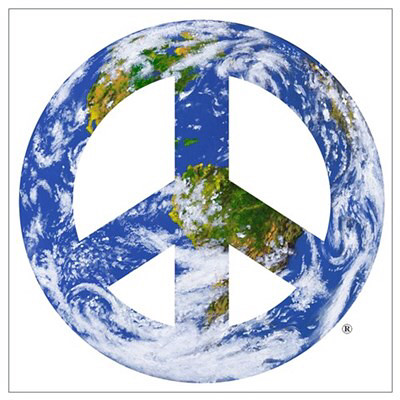

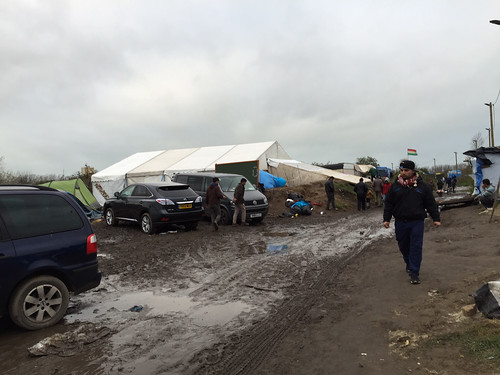
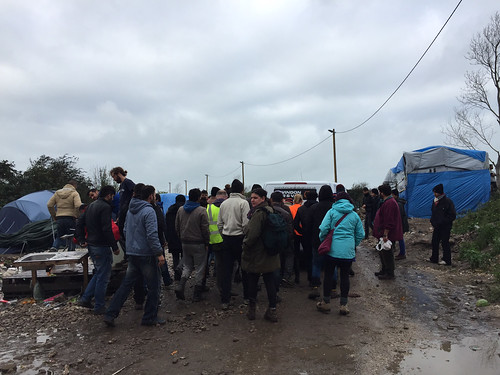
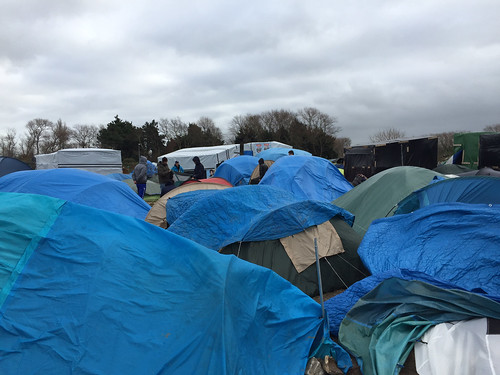
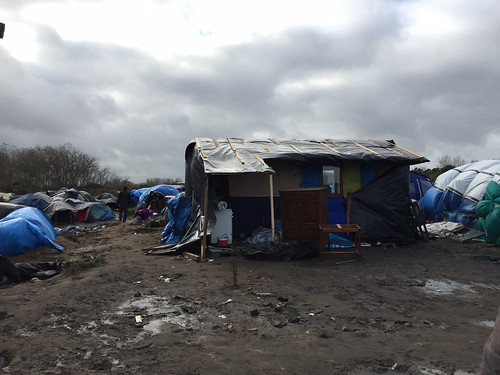
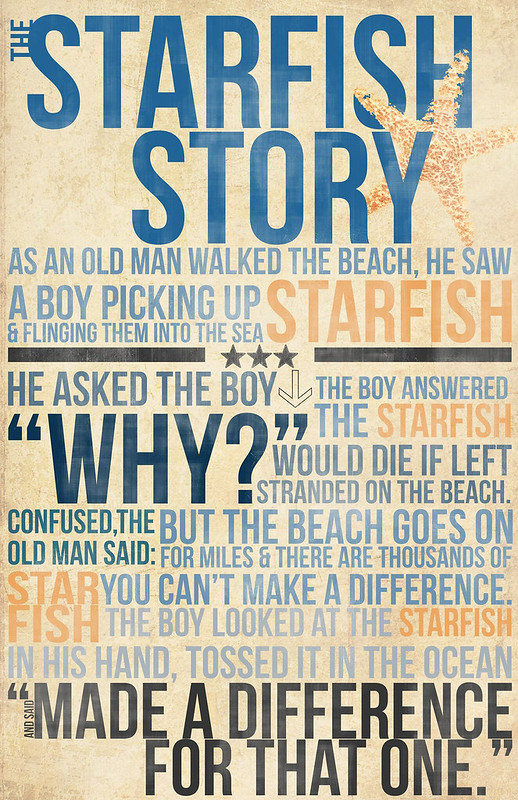
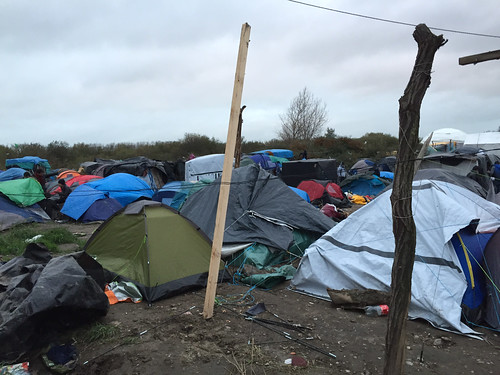
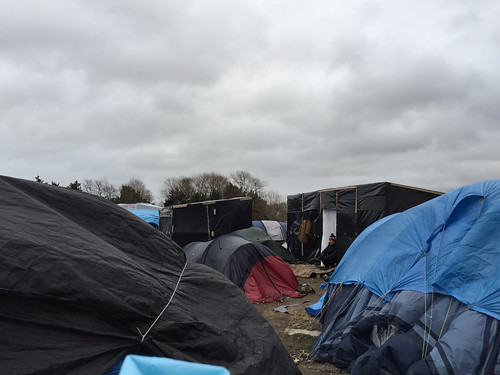
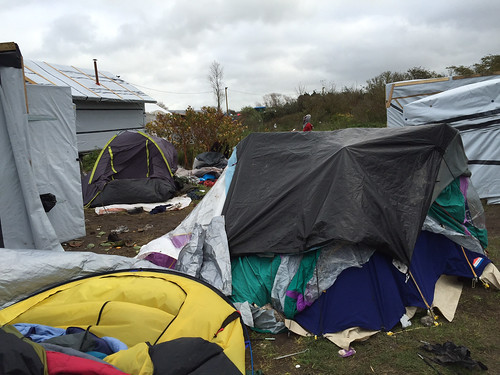
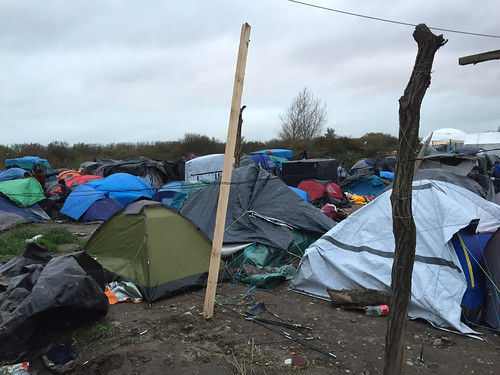


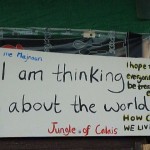
These people are threatening lives of truck driver that both come from the UK and other parts of Europe, how will you find sympathy from many folk as myself and other truck drivers and their families, with now having a put a small number of drivers in hospital due to their actions, which is also all over Facebook.
You could say as many things as you like, after my truck was damaged a few weeks ago what sympathy I did have is totally gone and I hope the CRS keep returning until these people are either remove by force or by their own choice, otherwise I hope they freeze to death.
I will not apologise for my harsh words, as this comes from the bad experience in Calais over this past year. You will find many others with similar views which have been brought on them selves.
Hi Colin. I thought really hard about whether or not to post your comment but realised you’d taken the time to read my post and write, so I had to approve it.
I think it’s totally wrong that truck drivers are being injured and trucks damaged and I would never condone that behaviour from anyone. I also think it’s wrong that truck drivers are penalised at all (never mind so heavily) when people get into the back of their vehicle – sadly there is nothing you can do to stop it happening and it shouldn’t be you who has your livelihood put at risk, never mind your health.
However, at the same time just as you can’t tar everyone with the same brush, not everyone in Calais is trying to get to the UK – many were but have stopped, many have ended up there with no idea how they are going to get anywhere else. There are women, toddlers, babies there and the idea that they should be beaten, tear gassed and just left to freeze or starve to death is dreadful. I don’t condone people trying to get here they way they are, but at the same time I do think our government needs to be doing more. There are so many people in Calais with family in the UK who would be instantly given asylum if they were able to apply, but the change of border position means they have no option but to arrive illegally in order to apply. What I would like to see is a processing centre in Calais so those people who want to apply can do so from Calais, and then if they have a case they can be brought here safely and legally, without endangering ANYONE’s Life or livelihood. But in the meantime I can’t stand by and watch teenager boys, women and children starve..